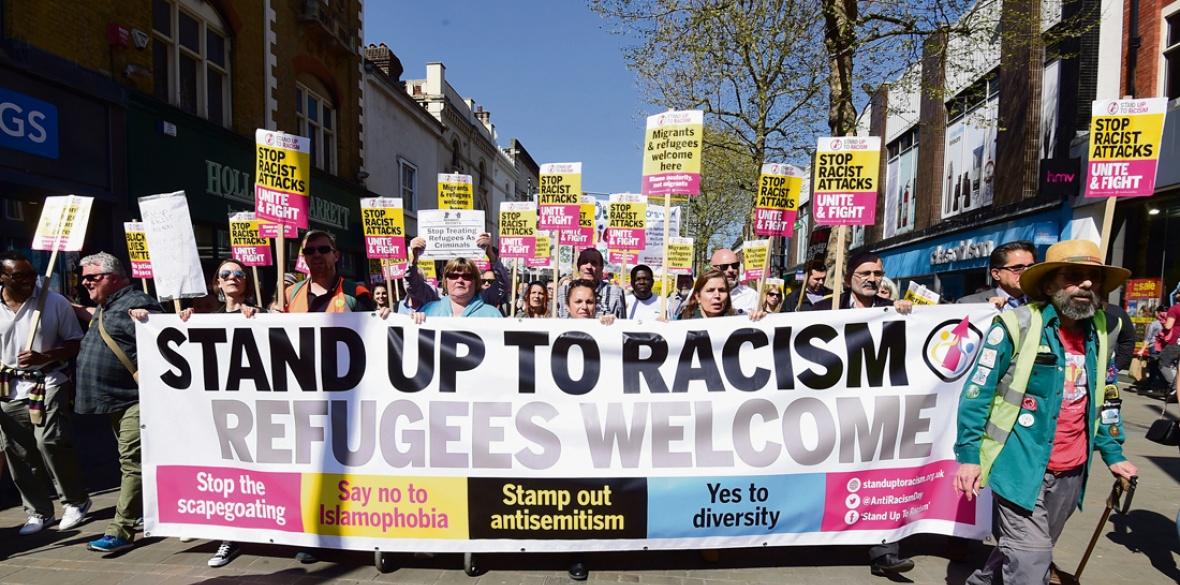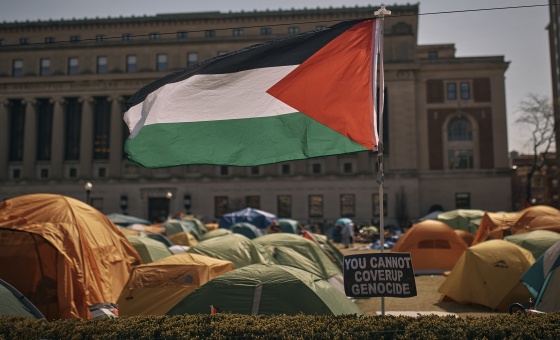This is the last article you can read this month
You can read more article this month
You can read more articles this month
Sorry your limit is up for this month
Reset on:
Please help support the Morning Star by subscribing here
TODAY’S unity march against racism and fascism is one of the most important of recent times.
I know this is often said about whatever march is about to take place, so much so that it has become a bit of a cliché. But this one really is one of the most important marches that I can remember.
It is not just because this is a march against racism and fascism. There are few things more vital right now than demonstrating against these twin evils.
It is important because today provides an opportunity to show two things.
First, it enables us to show the vitality of the socialist and progressive movement at a time when the thugs of the far right are seeking to claim the ascendency on our streets and in our communities and workplaces.
Second, we get the chance to continue to build the movement for socialism that will be necessary to bring about the fundamental and irreversible shift in society in favour of working-class people.
Marches primarily demonstrate that there is a movement. They can demonstrate the size and vibrancy of the movement and give people the confidence to go out and do what is the much harder task of movement building.
Movement building is, for me, another way of saying organising. So we should always be prioritising using marches to help organising rather than organising just for the sake of marching.
How we can develop deep organising — the sort of organising that reaches the parts other organising doesn’t reach — is, for me, one of the key challenge that faces us as socialists.
How do we go about organising that majority of the people who are not just against racism but who also truly value and celebrate equality and diversity?
For the record, I’m never going to argue for diversity for the sake of it. As if diversity itself was some sort of magic elixir capable of ending all the ills of the world. I argue for diversity with a purpose. That purpose, for me, must be rooted in the commitment to bring about that fundamental and irreversible shift in society that I mentioned earlier.
Anything else is window dressing that fails to understand the deep structural nature of racism and its absolute necessity for maintaining capitalism.
While we need to do whatever is necessary to tackle the increasing individual acts of racist violence and harassment in our communities and workplaces, we must never forget the systemic of racism and how it pervades workplaces and the institutions of state.
Racism must therefore also be tackled on that level. Failing to learn this lesson turns us into a reactive movement rather than one that actually argues for a better society where people are not ill judged on the basis of their colour, race, nationality or religion.
Sometimes calling another demonstration against racism is the right thing to do. Oftentimes it’s the only thing to do. However, Unison has always believed that it should never be seen as the end in itself.
It should always be part of a wider strategy of dealing with the root causes of racism wherever it raises its ugly divisive head.
The strategy against racism must always have an organising focus. In simple terms — the steps that need to be taken to move people of good intention from a position of apathy or quiet support to active engagement in both the anti-racist struggle and support for our wider agenda for the transformation of society.
None of this really comes directly from marching around city centres with, largely, fellow anti-racist activists who you marched with the last time.
It comes from the hard graft of going out to sometimes uncomfortable places to have difficult conversations with people and not thinking that this can just be done from behind a computer screen.
That’s where organisers earn their corn. Moving people out of their comfort zones to become more involved.
Trade union organisers have these difficult conversations every day in workplaces throughout the country. Looking to see how we can build membership and promote wider activity. We aim to build power for working people in their places of work by getting them to understand that this comes from their collective strength and willingness to act on that strength.
We must see organising against racism in a similar way. A collective endeavour rather than simply reacting individually to the latest act of racist aggression. In this sense marches obviously play an important role.
I fully support marching against racism and fascism or, for that matter, anything that seeks to divide working-class people against each other.
However, I think our ambition should be greater than demonstrating our opposition. We must understand that going largely unchallenged the systemic nature of racism will simply generate a never-ending list of reasons for us to march.
We must capture the imagination of those who are yet to be convinced to join our campaign for a better world. To do this we must set out a vision of the sort of society that we want to see.
This means more than sloganising about the things we are against and, instead, popularising the things we stand for. That of course means marching when we have to but it really means organising — all the time. Organising is not just for marches! Marches are for organising!
Roger McKenzie is an assistant general secretary of Unison.













